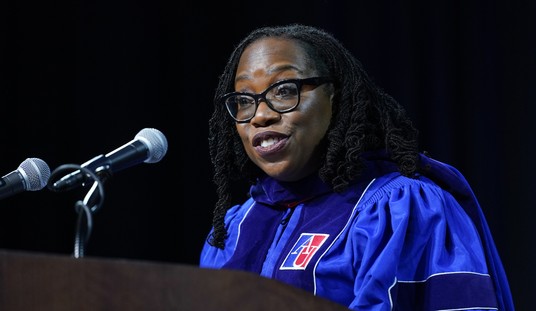The stakes for replacing Justice Antonin Scalia on the Supreme Court may have just gone up tremendously. Republican legislators in Oklahoma passed a bill this morning that makes performing an abortion a felony, with the ayes at nearly 3:1 over the nays. Critics warn that the law is unconstitutional — but advocates say, that’s the point:
Oklahoma lawmakers on Thursday approved a bill making it a felony for doctors to perform abortions, which opponents say is essentially a ban on the procedure.
The Republican bill, which has been called the first-of-its-kind nationally, will now be sent to the desk of GOP Gov. Mary Fallin. She has five days to sign or veto the bill before it automatically becomes law.
The bill is all but certain to wind up in court if it wins approval from Fallin, who has typically supported anti-abortion measures.
Nathan Dahm, the state senator who sponsored the bill, says his interest is both principled and strategic. The state should protect life as its first responsibility, but Dahm also wants a shot at overturning Roe v Wade:
“Since I believe life begins at conception, it should be protected, and I believe it’s a core function of state government to defend that life from the beginning of conception,” said Dahm, R-Broken Arrow. …
Dahm says he’s hopeful the measure could lead to overturning Roe v. Wade, the 1973 U.S. Supreme Court decision that legalized abortion nationwide.
That fight might have been better waged before Scalia’s passing. However, it’s not all that clear that it would have made much of a difference. While the Supreme Court has allowed some regulation and restrictions on abortions in recent years, they have also avoided relitigating Roe, even when they had opportunities to do so.
That certainly was possible in Casey, but instead the court affirmed Roe, with current Justice Anthony Kennedy in the lead. The court relied on Roe in Stenberg v Carhart as well, upholding late-term abortion 5-4, this time without Kennedy but with Sandra Day O’Connor as the swing justice, but then narrowly reversed in Gonzales v Carhart seven years later. Two years ago, the court declined to hear an appeal of a lower-court ruling striking down Arizona’s “fetal pain” limitation on abortion in Horne v Isaacson. The court as constituted now shows no interest in reopening Roe or particularly open even to new limitations on it.
Given that track record of parsing the margins by the top court, it’s almost certain that federal courts will strike down this new law and that appellate courts won’t take action to revive it when they do. With that in mind, Fallin will have to decide whether to spend money on a principled but doomed battle in the overall effort to change hearts and minds on protecting life from its conception, or whether to veto it and focus on a more incremental approach. It will take a significantly different Supreme Court to reopen Roe. That won’t happen without electing presidents who value life from conception and are willing to appoint justices who share that perspective.








Join the conversation as a VIP Member